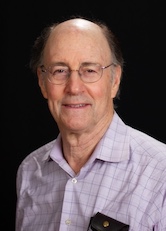
Stephen Kern, PhD
Humanities Distinguished Professor of History, The Ohio State University
Former Distinguished Research Professor, Northern Illinois University
Recipient, Ohio Academy of History Distinguished Historian Award
Title: Historical Background to Modern Neuroscience
Dr. Stephen Kern is Humanities Distinguished Professor of History at The Ohio State University, where he specializes in modern European and American cultural and intellectual history. Prior to joining Ohio State in 2002, he served as Distinguished Research Professor at Northern Illinois University. A nationally recognized scholar, Dr. Kern has received numerous prestigious fellowships, including awards from the American Council of Learned Societies, the National Endowment for the Humanities, the Rockefeller Foundation, and the Guggenheim Foundation. In 2007, he was named Distinguished Historian by the Ohio Academy of History.
Dr. Kern’s scholarship explores the intersection of modernism, science, literature, and the human condition. He is the author of several influential books, including Anatomy and Destiny: A Cultural History of the Human Body (1975), The Culture of Time and Space: 1880–1918 (1983), A Cultural History of Causality: Science, Murder Novels, and Systems of Thought (2004), and Modernism After the Death of God (2017). His work has been translated into multiple languages and continues to shape contemporary understanding of how science, philosophy, and narrative have evolved across modern societies.
Dr. Kern’s interdisciplinary work has shed light on how cultural constructs like love, time, causality, and the body have been perceived and reimagined through art, literature, religion, and medical science. His exploration of modernist literature and critical theory has influenced generations of students and scholars in the humanities and beyond.
At Ohio State, Dr. Kern teaches and mentors across topics ranging from intellectual history and European modernism to the cultural impact of science and technology. His current research focuses on concepts of origins and foundations in 19th- and early 20th-century Europe and America.
